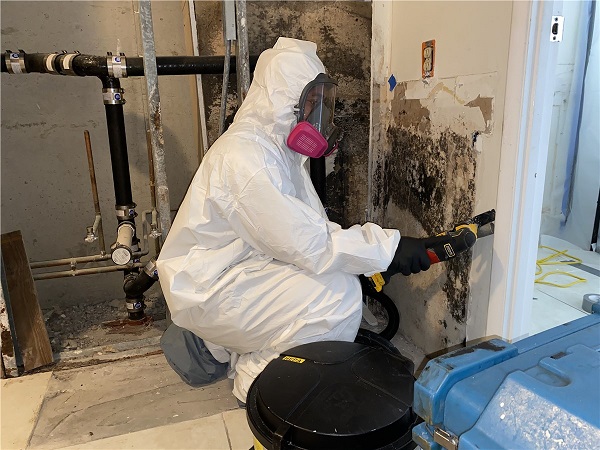If you’ve ever encountered a mold infestation, you’re probably aware of the importance of mold removal. Exposure to prolonged mold levels can have harmful effects on your health, so it’s important to get rid of it as quickly as possible. Mold removal is a necessity for those with allergies to the substance. It can also aggravate existing asthma, allergies, and other respiratory disorders. In any case, professional mold removal is the best option for these homeowners.

To avoid the risks of exposure, the EPA recommends that you call a professional for mold remediation. Mold Remediation will determine where the mold is located and safely remove and kill the mold. You might need to tear out the moldy material and repair it in some cases. A contractor will inspect your property and identify the source of the problem. After assessing your situation, they’ll formulate a mold remediation plan and address any source of moisture in the area.
It is important to understand what mold is. Mold can grow on any surface, including wood. Additionally, it can cause indoor pollutants and health risks, so it’s important to know how to spot the mold. While you’re searching for a mold removal company, it’s also smart to consider several preventive measures, such as running bathroom and kitchen exhaust fans and wearing N-95 respirators to protect yourself from the harmful vapors of mold.
You can try bleaching your walls, which is known as the spray-and-pray method. However, EPA and the Institute of Inspection Cleaning and Restoration Certification (IICRC) advise against using bleach on nonporous surfaces. Another solution that works for nonporous surfaces is vinegar, which can also help prevent mold from growing. While vinegar and a mildewcide are both effective for fighting surface mold, you may want to consider hiring a professional to get rid of it.
One of the easiest ways to recognize if you have a mold problem is the smell. Various molds have different scents, and they can be mild or overwhelming. When raining, you can smell a musty odor and investigate further to determine whether you have a mold problem. You can also look under sinks or near drain pipes. The smell can be very strong and should be detected as soon as possible. When the odor persists, it may be due to mold spores that have migrated from the surface of the surface.
Black mold is the most dangerous kind of mold, as it can affect your health. A professional can properly remove black mold. The most common cause of mold build-up is moisture. This type of mold thrives in a moist environment, so if you’re trying to clean it with water, it will end up wet. If it’s very damp, it’s recommended to use an air-moving system or ventilate the area to remove the moisture.
Once the mold has been properly identified, you can hire a professional mold removal company to perform the task for you. When you’ve hired a mold removal company, ensure that they have years of experience and have references you can check. Be sure to ask if they adhere to the recommendations outlined by the EPA in their guide Mold Remediation in Schools and Commercial Buildings and other professional guidelines. This will ensure that the job is done safely and correctly.
The cost of mold removal depends on the size of the problem. Whole-house mold remediation is the most expensive, and it is often the result of a flood or catastrophic water damage. During this process, you’ll have to replace your drywall, fabrics, and furniture and repair any damage caused by water. The average cost of whole-house mold remediation is between $10,000 and $30,000, but it can cost even more.
You should always hire a professional mold remediation company to eliminate the risks. Remember that you can use bleach to kill mold, but it won’t be effective if you don’t leak. You must make sure that you stop leaks and route water away from your foundation to prevent an infestation. It’s best to hire a mold remediation company if you’ve discovered more than a 10-square-foot mold infestation.
